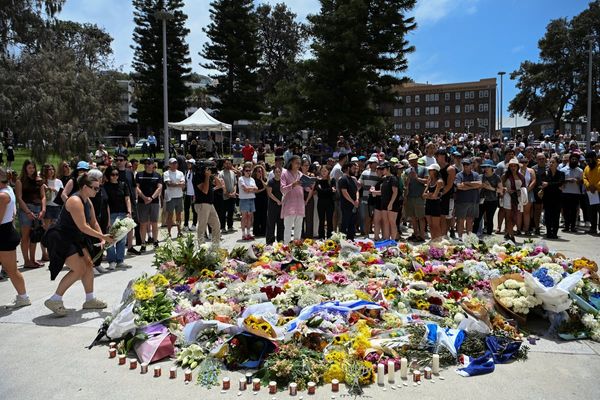
“It’s the idea that everything is healed.” Jennie Agg is talking to me about miscarriage. Or, specifically, how it feels to have a baby after miscarriage – or miscarriages, plural; Agg had four before she gave birth to her boy. Life, Almost – her book detailing her experiences and investigating why miscarriage still remains such an under-researched and under-acknowledged experience – has just come out, and it’s a vital new examination of the subject, with each chapter given the title of some of the false, trite or dismissive things people say: “It’s just nature’s way”, “it’s not a real baby yet”, “everything happens for a reason”.
In a book full of insights, perhaps one of the most affecting is the dawning understanding of the legacy that pregnancy loss can have. There is still an absurdly prevalent notion that finally getting a healthy baby – as most couples who experience miscarriage will – somehow wipes the slate clean, and makes everything that has happened in the past melt away. “Any residual grief, trauma or yearning is supposed to be washed away by the arrival of a longed-for child,” she writes. “After all – you got what you wanted, didn’t you?”
Agg admits that she herself, who had been just so desperate to get to a point where she could bring a baby home, even believed this to an extent. She notes that most miscarriages we hear about in the media are stories told in retrospect, from the perspective of a safe place of “success”. (“We do not see miscarriage lived, only reported,” is one of the many standout lines from the book.) And so they are treated as blips in a journey that are now in the past, rather than experiences that might continue to reverberate in the present. While women might feel more comfortable talking about miscarriage from the perspective of now being a mother – and others, I suspect, may feel relieved from some of the discomfort and awkwardness they feel when it’s talked about – Agg argues that this framing means that we do not see a fully nuanced picture of miscarriage. Nor do those with a history of miscarriage always feel able to talk about parenting and parenthood in all its complexity.
Because how, for instance, do you say that you’re not enjoying it, that you’re finding it difficult, when you wanted it so desperately? Agg writes that she often opted to stay silent, not only about the challenges of motherhood, but also about the positives, aware of how they could wound those who are going through miscarriage. The way other people behave towards you changes too, she notes. “I think people no longer feel that awkwardness or that pressure or that discomfort … very quickly, they proceed to treat you like any other person.” And so she found herself being asked, glibly, “Do you think that you’ll have another?” even though the reasons for her repeated losses were never discovered or resolved.
She tells me how miscarriage meant that for the first six months of her baby’s life, every moment just felt incredibly precious, that she felt determined not to take everything for granted. But with that comes “an awareness of how easily it might not have happened, how fragile it is”, and a sadness at what they had been missing for so long. She acknowledges, too, an anxious hypervigilance in how she parents, though she tries to steer clear of the language of trauma. Many parents worry about developmental milestones, of course, or will feel on edge when their baby has a bad wheezy cough, but a history of miscarriage can exacerbate anxiety further.
One in five women who experience early miscarriage are afflicted with PTSD-like symptoms, and we know that it is a predictor of postnatal depression and/or anxiety. Despite this, healthcare professionals doing postnatal checks are still not advised to treat pregnancy loss as a contributing factor, or to ask about it. Even in the medical profession, it seems, miscarriage can be treated as irrelevant once a woman has “successfully” given birth.
Agg says that it would have made such a difference if it had been raised, or if it had been acknowledged that it’s not only normal to find parenthood hard, but that such a medical history might make it more so. Instead, you can end up with a romanticised ideal of what parenthood is going to be like, while also being completely unprepared for it, because you don’t want to tempt fate by organising anything or doing too much research.
Of course, how a person parents after miscarriage not only affects them and their partner, but also the child that has been born. Agg is resolute that she doesn’t want to treat her son like a “miracle baby”, or burden him with too much meaning, so that he grows up “in the shadow of putative children”. At the end of the book, she writes of how a friend told her that in her religion the souls of babies lost in pregnancy are believed to be reincarnated of the ones of subsequent children. It is not an idea that everyone might find comforting, though Agg does. More interesting though, I think, is her discovery that embryos shed cells into a mother’s bloodstream that can remain in her blood and tissue for years afterwards. So, yes, as a result of this microchimerism, microscopic traces of one baby could go on to exist in another.
But what strikes me even more is how this process is, in its way, a perfect metaphor for grief and its residues; how the things that happen to our bodies never truly leave us. Particularly the visceral grief that can come from the loss of the much-wanted pregnancy. That might leave traces for even decades afterwards. We should recognise and honour that pain, and support those enduring it.
What’s working
Another excellent book on the subject of miscarriage is Miranda Ward’s Adrift. My generation of women are in the process of creating their own literature of motherhood and not-motherhood, both in fiction and nonfiction, and the high quality of much of the work feels radical and inspiring. Don’t believe anyone who tells you that it’s all been said before: as Elena Ferrante has said, such a literature is only in its beginnings.
What’s not
Ward, who has just experienced her fourth miscarriage, wrote on Twitter recently that some things had changed for the better in the last decade. But she also highlighted how couples experiencing miscarriage are still sent for the scan to confirm this on the same floor of the hospital as all the happy couples being given photos to take home and celebrate. I have heard stories of kindly nurses sneaking women out down stairwells so they don’t have to face such scenes. Surely some changes could be made to the system, though.
Rhiannon Lucy Cosslett is a Guardian columnist and author







